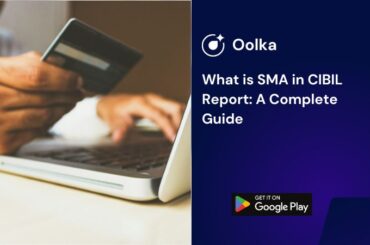We all now know why understanding your CIBIL Score is crucial, especially if you’re considering major financial decisions. In our last blog, What is Credit Score & Why it Matters?, we understood how the Credit Score is a proof of your credit worthiness, reflecting how responsible you are with credit management.
CIBIL, or the Credit Information Bureau (India) Limited, is the organization behind these credit scores in India, playing an important role in financial decisions made by lenders. A good CIBIL score paves the way for loan approvals and ensures favourable terms, making it a foundational element of financial health. Now, let’s understand the major factors that impact your CIBIL score.

Key Factors that Influence Your CIBIL Score
- Repayment History
Your history of paying back loans and credit card bills is a critical factor. Just as consistency in any responsibility can reflect positively on your reliability, making timely payments can significantly boost your CIBIL score. It’s a demonstration of your trustworthiness and your ability to meet financial commitments on time.
- Credit Utilization Ratio
Imagine your credit limit as a bucket of water. The less water you use, the more you have left. Lenders prefer that you don’t empty this bucket too quickly. Using a small portion of your available credit is seen positively, as it indicates you’re not too reliant on it. This balance can positively influence your score, much like how saving water is good for managing resources at home.
- Length of Credit History
The longer you’ve been using credit, the better it is for your CIBIL score. This longevity offers a more comprehensive view of your financial habits. A long credit history proves you’ve managed money well over time, showing you’re good with credit.
- Type and Number of Credit Accounts
Having a mix of credit, such as home loans, credit cards, and personal loans, shows you can handle different types of financial responsibilities. This diversification in your credit portfolio not only strengthens your CIBIL score but also demonstrates to lenders your versatility in managing various credit forms.
- New Credit Applications
Each time you request new credit, it’s akin to taking on additional responsibilities. This frequent action may create the perception that you’re stretching yourself too thin, causing concern for lenders. Each application can decrease your credit score, highlighting the importance of thoughtful consideration before applying for new credit.
Additional Factors
- Payment Defaults
Missing payments can significantly affect your CIBIL score, marking a serious lapse in your credit management. Timely payments are vital for maintaining a healthy credit score.
- Debt Settlements
Settling a debt for less than the full amount owed can negatively impact your CIBIL score. It indicates to lenders that you were unable to fulfil the agreed-upon financial terms which affects their perception of your reliability.
- Public Records
Legal issues related to debt, including bankruptcies and judgments, lower your credit score. These records show serious financial troubles or mismanagement, which might make lenders think twice before giving you credit.
Why Does Your CIBIL Score Matter?
Your CIBIL score is important as it can significantly influence your financial journey. A high score often leads to lower interest rates on home loans and various other forms of credit, which can make big purchases like homes and cars more affordable in the long run. Essentially, it acts as a signal to lenders about how reliable you are when it comes to managing and repaying borrowed money.
Taking the time to understand and improve your CIBIL score is key to enhancing your financial situation. It’s not just about accessing funds when you need them but doing so in a way that benefits your financial future.
Building and Maintaining a Good CIBIL Score
Ensuring a good CIBIL score involves regular monitoring and smart financial habits. Prompt repayment of dues, maintaining a balanced credit mix, and smart borrowing are key strategies. It’s also advisable to check your credit score periodically to identify and rectify any discrepancies.
Your CIBIL score is not just a number but a reflection of your financial discipline and credit worthiness. By understanding the factors that affect this score, especially when considering significant financial commitments, you can take steps to improve your financial profile. This not only opens the door to better credit opportunities but also secures your financial future. To learn what factors could be impacting your credit score, get in touch with the best credit building app.






